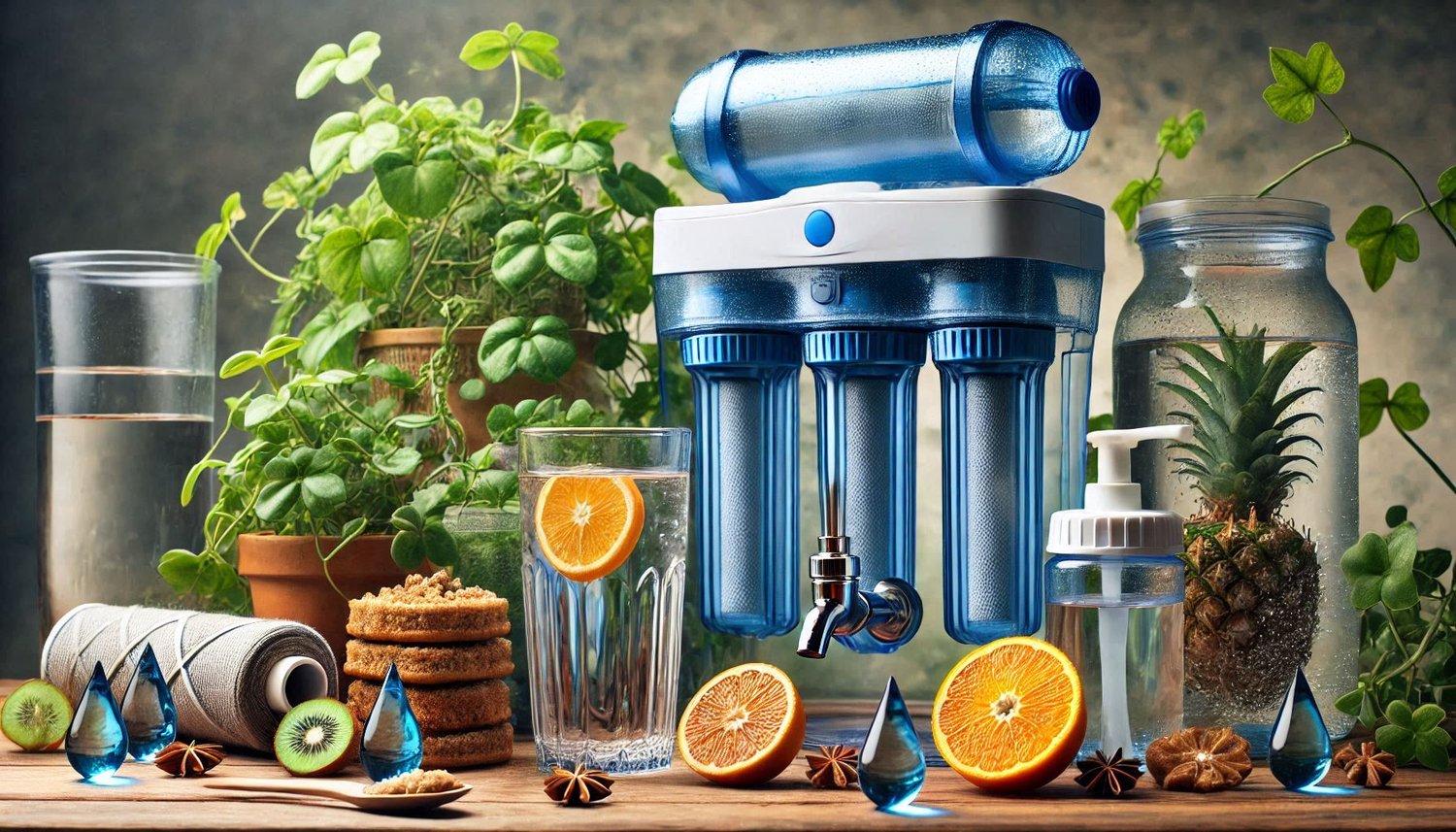Water is essential to life. We use it every day, whether for drinking, cooking, or cleaning. However, not all water sources are equally clean or safe. Many contain contaminants that can pose health risks over time. This is where water filters come into play. By removing harmful substances, water filters not only improve the taste and odor of water but also contribute significantly to our overall health and wellness. This post will dive deep into how water filters improve health and why they are vital for maintaining wellness.
The Health Risks of Unfiltered Water
Unfiltered water, especially from untreated sources like wells or certain municipal supplies, may contain various harmful contaminants. These include:
- Microorganisms: Bacteria, viruses, and parasites like E. coli, Giardia, and Cryptosporidium can cause gastrointestinal illnesses, ranging from mild to severe.
- Chemicals and Heavy Metals: Industrial runoff, agricultural pesticides, herbicides, and heavy metals like lead, mercury, and arsenic can infiltrate water supplies, potentially leading to long-term health issues such as neurological damage, kidney problems, and increased cancer risk.
- Chlorine and Chloramines: While these chemicals are added to water to kill harmful pathogens, excessive exposure can irritate the skin and respiratory system, and potentially form toxic byproducts like trihalomethanes (THMs), which are linked to certain cancers.
- Pharmaceuticals: Traces of medications, including antibiotics and hormones, have been found in water supplies, raising concerns about their long-term effects on human health.
How Water Filters Work
Water filters are designed to remove or reduce harmful contaminants from your water supply. Different filtration technologies target different pollutants. Here’s an overview of common types of water filters and their benefits:
- Activated Carbon Filters: These filters are excellent for removing chlorine, volatile organic compounds (VOCs), and some pesticides and herbicides. They also improve the taste and odor of water by eliminating unpleasant smells.
- Reverse Osmosis (RO) Systems: RO systems use a semipermeable membrane to remove a wide range of contaminants, including heavy metals, nitrates, and even certain bacteria. They are especially effective for households that rely on well water.
- Ultraviolet (UV) Filters: UV filters use ultraviolet light to kill microorganisms like bacteria, viruses, and parasites, making water safe from potential infections.
- Ceramic Filters: These are often used to remove bacteria and sediment from water. They work well in areas where the water contains high amounts of particulate matter.
- Ion Exchange Systems: These filters soften hard water by replacing calcium and magnesium ions with sodium or potassium ions, improving water quality and extending the lifespan of household appliances.
Health Benefits of Using Water Filters
Now that we’ve established what water filters do, let’s look at how they directly contribute to health and wellness:
- Improved Digestive Health: Drinking clean, filtered water can prevent the ingestion of harmful microorganisms that cause gastrointestinal diseases. Filters that remove bacteria and viruses can significantly reduce the risk of waterborne illnesses like diarrhea, which can lead to dehydration and malnutrition, particularly in vulnerable populations like children and the elderly.
- Reduced Exposure to Chemicals: Long-term exposure to chlorine, heavy metals, and other chemicals in water can lead to chronic health conditions. By using a water filter, you minimize these exposures. Reverse osmosis filters, in particular, are effective at removing lead, which is linked to developmental issues in children and cardiovascular problems in adults.
- Healthier Skin and Hair: Tap water containing high levels of chlorine and other chemicals can strip your skin and hair of their natural oils, leading to dryness, irritation, and conditions like eczema. Filtered water helps reduce this exposure, leading to healthier, more hydrated skin and hair.
- Enhanced Detoxification: Water is crucial for the body's natural detoxification processes. Clean, filtered water ensures that your organs, particularly the liver and kidneys, can effectively flush out toxins without the added burden of processing additional contaminants.
- Better Taste Encourages Hydration: One often-overlooked benefit of water filters is the improvement in water taste. Chlorine and other chemicals can give water a foul taste or odor, discouraging people from drinking enough water daily. By filtering out these chemicals, the water becomes more palatable, encouraging better hydration, which is essential for maintaining energy levels, cognitive function, and overall wellness.
- Protection Against Harmful Pharmaceuticals: Although research is still ongoing about the long-term health effects of trace pharmaceuticals in water, removing these contaminants with a water filter adds an extra layer of protection, especially for individuals with compromised immune systems.
- Support for Healthy Aging: As we age, our bodies become more susceptible to pollutants and toxins. Clean water supports critical functions like digestion, nutrient absorption, and joint lubrication, making filtered water an important part of a healthy lifestyle for seniors.
Wellness Benefits of Filtered Water Beyond Health
In addition to the physical health benefits, using a water filter also contributes to environmental wellness and cost savings:
- Environmental Sustainability: By filtering your water, you reduce the need for bottled water, which is both costly and harmful to the environment due to plastic waste. Investing in a quality water filter system helps reduce your carbon footprint and supports a more sustainable lifestyle.
- Financial Savings: While there’s an upfront cost associated with purchasing a water filter, it’s a cost-effective solution in the long run. You’ll save money by avoiding expensive bottled water and potentially reducing medical bills associated with waterborne illnesses or long-term exposure to harmful chemicals.
Conclusion
Investing in a water filter is a simple, effective way to improve your overall health and wellness. By removing harmful contaminants, water filters help protect you from waterborne diseases, reduce exposure to harmful chemicals, and promote better hydration, which is vital for maintaining your body’s optimal function. Whether you’re looking to enhance the taste of your water or safeguard your family’s health, using a water filter is a crucial step toward ensuring the quality of one of the most essential elements of life—water.
For your health and wellness, consider incorporating a water filter into your daily routine. Your body—and the planet—will thank you.



Comments ()